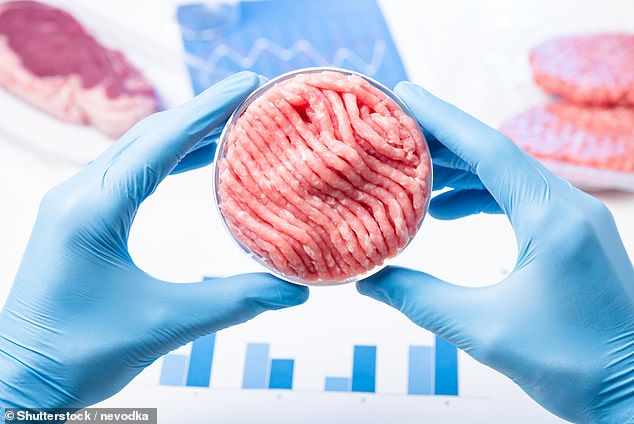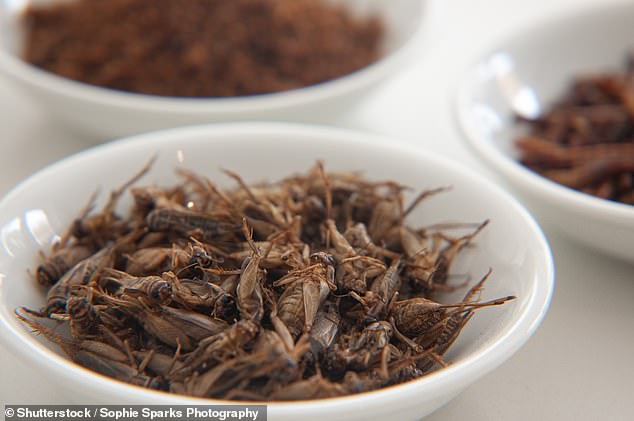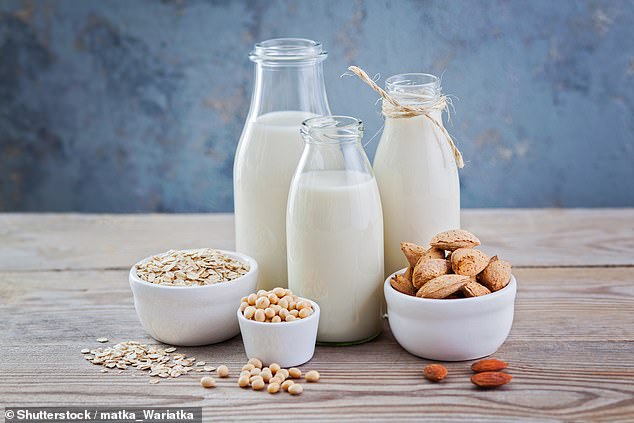Is Britain Secretly Going Vegan? Government Invests £15 Million in Fake Meat Lab to Create Climate-Friendly ‘Alternative Proteins’… Could They Soon Be in Your Sausages and Burgers?




Thanks to £15 million of taxpayers’ money, lab-grown meat and insects could soon become a regular part of our diet.
The National Alternative Protein Innovation Centre (NAPIC) is being established in the hope of finding sustainable alternatives to, for example, steak and chicken.
This may include land and aquatic plants such as grains, legumes, tubers and nuts, fungi such as mushrooms, algae such as seaweed, insects and laboratory-grown meat.
Scientists hope to find tasty, affordable and healthy proteins that are better for the environment and help reduce emissions and individual carbon footprints.
They even suggested adding ‘sweet proteins’ to their diets as an alternative to sugar in a bid to tackle Britain’s obesity crisis.
Experts say that as the world’s population continues to grow, supplementing traditional agriculture with alternative protein sources is “critical” to meeting rising demand in a sustainable way.

The National Alternative Protein Innovation Centre (NAPIC) is being established in the hope of finding sustainable alternatives to, for example, steak and chicken (stock image)

These may include land and aquatic plants such as grains, legumes, tubers and nuts, fungi such as mushrooms, algae such as seaweed, insects and laboratory-grown meat.
The centre is a collaboration between researchers from the University of Leeds, the James Hutton Institute, Imperial College London and the University of Sheffield.
Dr Rob Hancock, deputy director of the Advanced Plant Growth Centre at James Hutton, said: ‘We currently import over £15 billion worth of protein products – meat, dairy and seafood.
‘On top of that, the UK imports £3 billion worth of animal feed, so we need to move to a system where we can produce more of those protein products within the UK.
“And we need to do that in a way that is more environmentally friendly and less harmful.”
Another expert on the project, Professor Karen Polizzi from Imperial, said the centre could improve the British diet by using ‘sweet’ proteins, such as those found in tropical plants, as a sugar substitute.
“To give a concrete example, some proteins actually have a sweet taste,” she said.
‘So you can imagine that you can use that protein to sweeten different products and thus reduce the sugar consumption of the population.’
Professor Louise Dye, co-director of the Institute of Sustainable Food in Sheffield, said experts were keen to stress that alternative proteins were not about dictating what people should eat.

One possible example of how experts could apply the lab’s work was finding the ideal blend of dairy milk with plant-based milk to reduce environmental impact while still giving customers what they expect.
“We’re not going to tell people to eat insects,” she said.
‘We are looking at alternative proteins from all kinds of plant sources, and also at different protein production methods.’
One possible example she gave of how the lab’s work could be used was finding the ideal blend of cow’s milk and plant-based milk to reduce environmental impact while still giving customers what they expect.
“For example, blending plant-based milks and dairy products is a good example of how we can produce milk with an optimal sensory profile, but in an ethical, safe and healthy way, reducing our reliability and dependence on dairy products and their environment,” she said.
High protein alternatives such as soy milk and Quorn mince have been available in the UK for several years.
However, figures show that they only make up a small percentage of our daily protein intake, and there are also studies that raise concerns about taste and sensory perception.
Some also claim that lab-grown meat is an ultra-processed food (UPF) due to the likely addition of additives such as artificial colors and flavors.
Professor Dye said: ‘We recognise that there is a real need for protein because it is a really important part of our diet.
‘It is vital for health and we know that currently only 9 percent of the protein bought in supermarkets comes from alternative proteins.
“The rest of our proteins all come from animal proteins.”
She said that to encourage people to eat alternative proteins, they must have an appealing texture and taste.
On the question of whether alternative proteins might be considered ultra-processed foods, she said, “I think the UPS debate here may be a distraction, and I would be very cautious about calling alternative proteins ultra-processed foods.
‘They’re not necessarily. They require some processing, but at what point do we mean ultra-processing?
“If you look at the foods that most people currently label as UPF, you will see that they are high in energy and high in fat, salt and sugar.”
The centre is funded by the UKRI Biotechnology and Biological Sciences Research Council and Innovate UK.
The project’s initiators believe it can act as a ‘catalyst’ for the UK’s growth potential in alternative proteins, generating £6.8 billion a year and creating 25,000 jobs.




